Name: Istvan Szabo
Age: 43
Marital status: In a relationship
Education: Bachelor’s degree in Mechanical Engineering from Budapest University of Technology, Hungary
Position: PDMS designer at TCM 2015 –
Merete Lunde was born and raised in Drammen but has spent her entire adult life in Western Norway. “My heart is in Mongstad,” says the operations manager at TCM with a smile.
Merete has only had the job at TCM since February this year. However, since she started as an engineer at Statoil (now Equinor) in 1997, her work journey has almost exclusively followed County Road 57 to Mongstad. “That’s how it went when I found myself a man from Nordhordland and Equinor gave me interesting tasks at the refinery. My love for Mongstad and the fantastic colleagues has only grown stronger over the years. I couldn’t be happier.”
Curiosity and the desire to try something new led Lunde to accept the offer to become the head of Operations, the largest department at TCM with nearly 30 employees, before the end of last year. She knows what it takes to operate a process plant, and ten years in the management team of the Mongstad refinery have given her solid experience in leading others. However, CO2 capture was uncharted territory.
“At the refinery, the business is about the production of petroleum products. At TCM, the deliveries consist of knowledge related to testing and verifying various technologies to combat global warming. The job offers an exciting combination of operations and development towards the green shift. But operationally and technically, much is comparable to what I have done before, because at TCM we also operate a process plant.”
Merete Lunde’s long experience at the refinery has also created an engagement in her for the varied industrial cluster at Mongstad, with a total of approximately 3,000 jobs. She is the chair of the board of the industrial incubator Industriutvikling Vest, which drives transformation in traditional industry and the establishment of new businesses based on sustainable energy solutions.
Name: Merete Lunde
Age: 52
Marital status: Married, two children
Education: Master’s degree in chemistry, University of Bergen
Position: Operation Manager from February 2024, employed by Equinor
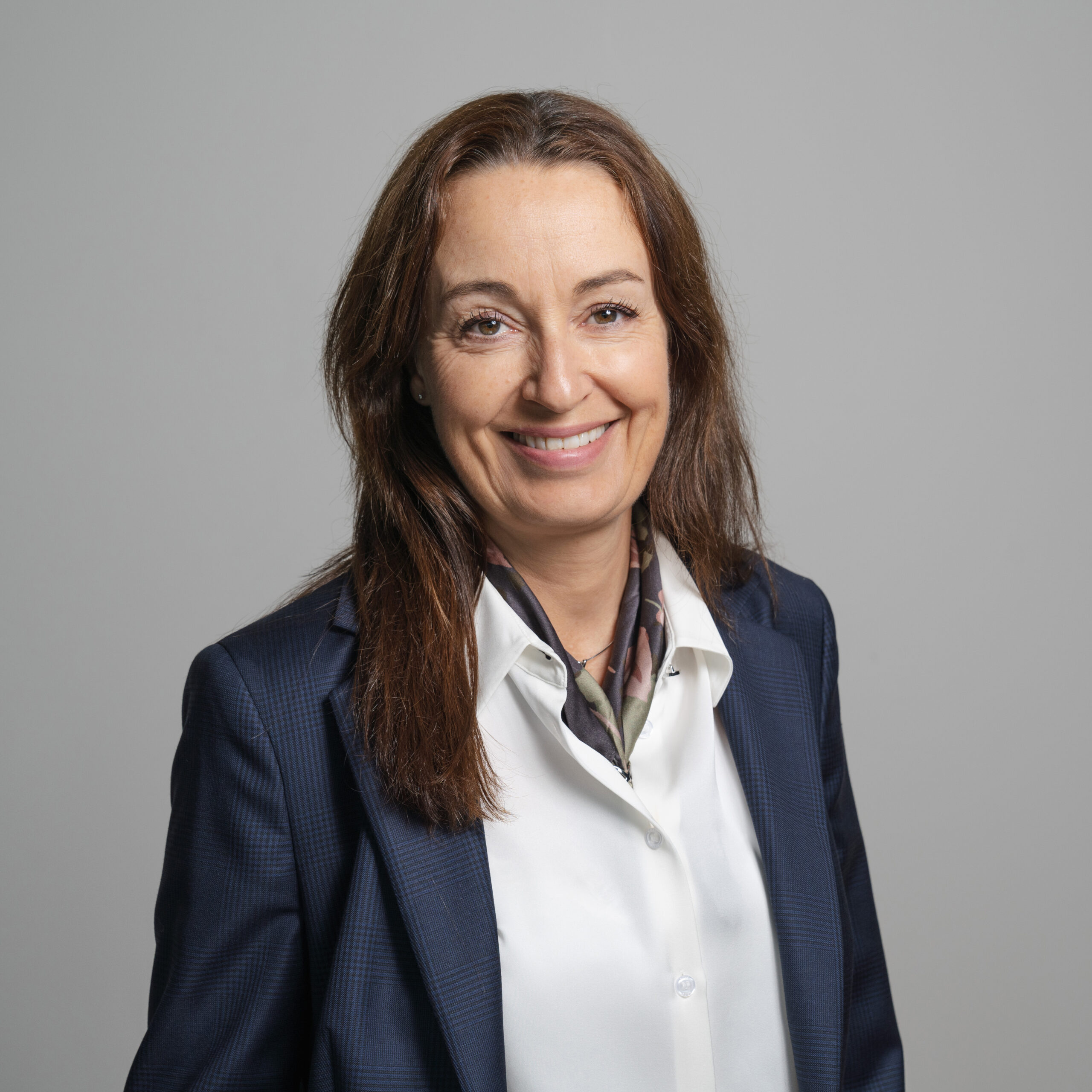
“I have had many different positions in Equinor that have given me a wide range of experiences. I have had operational jobs and worked in staff and support roles in HSE and HR. But the experience as operations manager and later technical manager is especially useful for ensuring the safe operation of the facility and achieving improvements and simplifications that enhance efficiency within an acceptable risk.”
In the department that Lunde leads, there are operators who work in shifts, a laboratory with engineers and a lab technician, and a maintenance unit that collaborates extensively with the equivalent department at the refinery. Additionally, there is an experienced team for automation, instrumentation, and process. They are important for the operation of the facility, delivering test results to customers, and controlling emissions.
“TCM’s unique nature means that everyone in Operations must work closely with the other departments in the company. When a test campaign is in the planning stages, early involvement in the design of contracts is important. We need to understand the set frameworks to prepare properly. This makes it easier to handle all the questions that arise and set the necessary parameters for the safe and efficient execution of the campaign. Our expertise is actively used to help the customer before, during, and after a campaign.”
With her long background in oil and gas, safety considerations are second nature to Merete Lunde.
“At TCM, we don’t have hydrocarbons, so when I started, I focused on understanding the risks in the capture facility. This knowledge is important to meet customers’ expectations to the fullest. Therefore, I have spent a lot of time talking to people, finding out what they want to achieve at TCM and what they see as the challenges. We are undergoing a significant improvement process at TCM, and it is valuable to listen to viewpoints and experiences from all parts of the organization. This is necessary for me to make good decisions for the road ahead.”
“We use the work processes established in Equinor that describe internal and external requirements and guidelines for ensuring health, safety, and environment. In addition, we have an overview of all chemicals brought into the facility, which must be approved in advance. We also work on mapping the work environment risks for various tasks and assess whether the risk is acceptable or if measures need to be implemented—whether it is for handling chemicals or ergonomic measures. We do this in collaboration with the HSE department at TCM and the HSE units in Equinor.”
“Definitely the people! It is not surprising that there are so many talented and nice people in the organization, but the reception I have received has given me a lot of joy and energy. The employees at TCM are truly passionate about us succeeding with the major and important tasks we have. The impression is that many people know much more than just their own job, and are keen to ensure that this knowledge benefits the whole community. Interdisciplinarity is incredibly important in a small organization like ours.”
During the spring and summer, TCM conducted an experiment in collaboration with Equinor, testing a robot that performed routine maintenance operations at the facility. ‘The Dog’ named SPOT worked diligently, including during the visit of Climate and Environment Minister Andreas Bjelland Eriksen to TCM in April.
Merete Lunde sees significant potential for both HSE and efficiency through the use of such technology in the future, and that testing and developing such technology can be done at TCM.
”Robots will be able to perform tasks that, for example, eliminate the need for personnel to stay in areas where it may be cramped, where temperatures are either extremely high or low, and where there is a risk of exposure to chemicals. In this way, we reduce the risk of working in a potentially hazardous environment, while allowing personnel to spend their time on other tasks.”
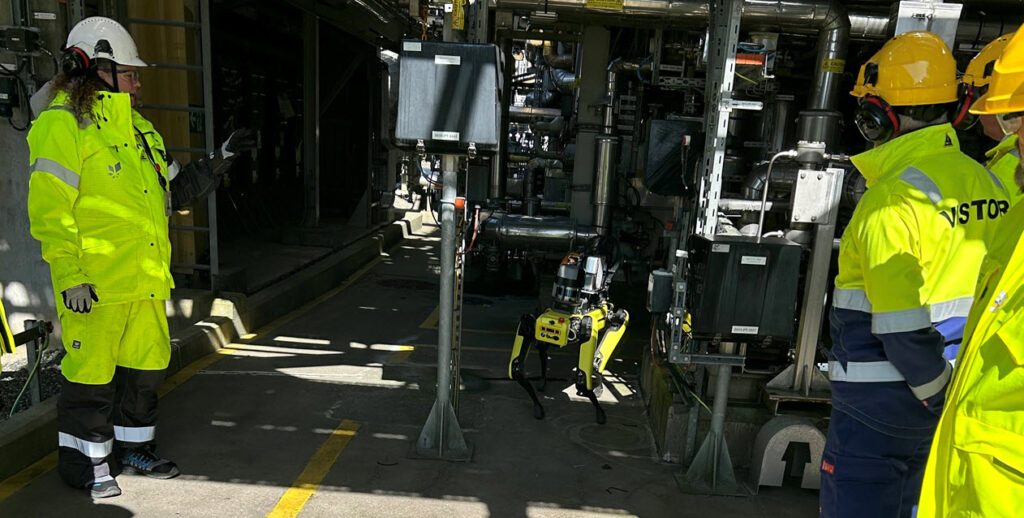
“Overall, my wish and hope are that TCM’s facilities and services continue to be perceived as relevant both for suppliers of mature and new capture technologies, so that customers line up to come to us.
But as the manager of Operations, I also have a strong desire for TCM to develop into a center for testing robot and drone technology relevant to CCS. I believe this can strengthen the CCS industry by making the construction and operation of full-scale CO2 facilities more affordable. Due to the absence of hydrocarbons at TCM, the risk is lower than in other industries. This allows us to conduct testing of robots and drones here before they are potentially used in other types of processing facilities with higher fire and explosion risks, such as oil and gas. In this way, innovation and new thinking can provide an important contribution to TCM’s other business activities.”
For nine years, Hungarian Istvan Szabo has excelled as a PDMS Designer at Technology Centre Mongstad. His work involves continuously updating the plant’s 3D model to incorporate modifications using Plant Design Management System (PDMS) nowadays known as E3D.
Istvan`s role is to support study projects by estimating piping and structural scope and involves collaboration in establishing procedures and best practices for creating content in design databases. “The most fulfilling part of my job,” states Szabo, “is the opportunity to work closely with emerging CO2 capturing technologies, contributing directly to environmental sustainability.”
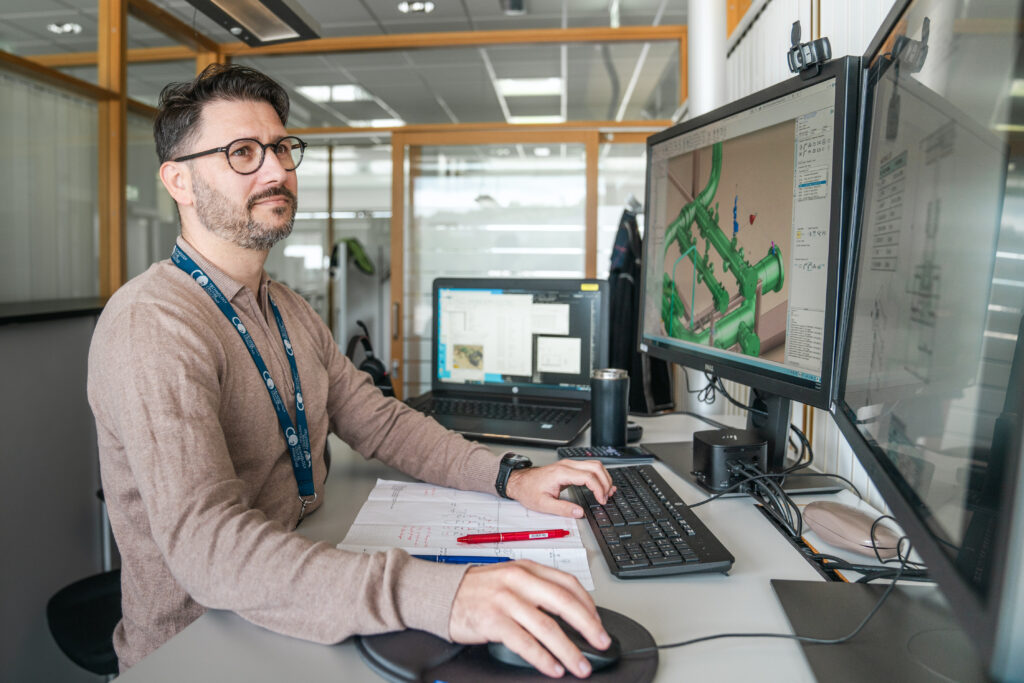
”I remember when I started at Technological Engineering Company, my first employer at Mongstad, in 2008 that TCM was built and we could see the amine tower being erected from the office window. The company also got a project with TCM two years later. It was about some air intake on the RFC blower. At that time the administration building was not taken in use, and we went to the barrack offices for meetings. We discussed engineering of the platform, which was necessary to access this new air intake and the valves on it.
I remember I did some onsite measurements in the refinery and made a 3D model of the surroundings and the platform, because we couldn’t afford 3D scanning those days. My colleague were running the fininte element analysis on it and we delivered the drawings. At that time, I did not understand the business idea of TCM; I only concentrated on my small project. The only person at TCM I remember from that time is Karstein Mangersnes, who worked in electrical installation and led the meetings. Later on he became a good colleague at TCM.”
Name: Istvan Szabo
Age: 43
Marital status: In a relationship
Education: Bachelor’s degree in Mechanical Engineering from Budapest University of Technology, Hungary
Position: PDMS designer at TCM 2015 –
”The reason why I was contracted was that TCM needed a person who understood 3D design and could use this software in the plant. At that time I think I was the only person in Mongstad with this knowledge. So it was an easy option.
I straight away decided that this is something interesting to happen but knew little of the challenges. The main one was that TCM was designed by three different companies, Aker, Alstom and Aibel who all have their separated PDMS models. They each had their own way of configuring the software and storing the data. When it was delivered, these 3D model databases were combined in one multi-database. This posted and still poses challenges to work with. So my first task was to actually keep the 3D model up-to-date with the modifications happened on site. Different methods are required to extract isometrics from one database configuration to another, and finding or reporting information from the databases varies.
This was challenging due to differing data structures for the amine plant, chilled ammonia plant, and utilities. However, I found it fascinating to gain a deeper understanding of the 3D tool and database structuring, thanks to these challenges rather than simply measuring and modeling the plant in 3D. Today, the model is functional and effective, but there is still room for improvement. It appears to be an everlasting task.”
”Initially, CO2 capture wasn’t my primary focus, but my involvement has deepened with each project. This has significantly broadened my understanding of various CO2 capture technologies and their potential impact on climate change.”
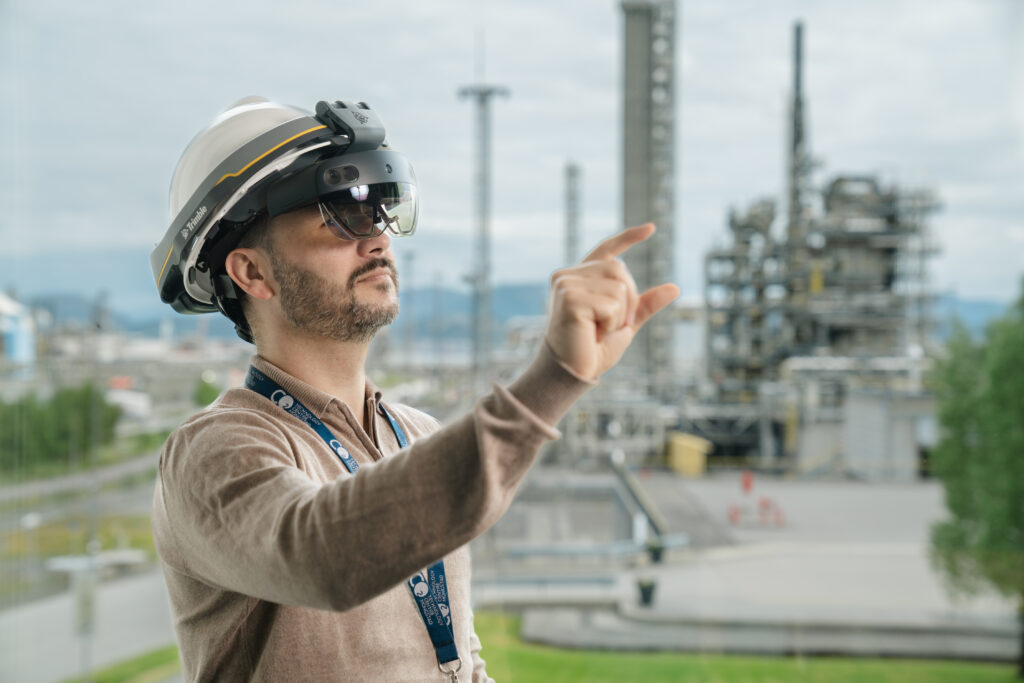
”Each day varies, but generally, my tasks involve refining and verifying the 3D models for TCM. I utilize tools like HoloLens to overlay 3D models onto the real-world environment, ensuring accuracy and up-to-date modifications.”
”My role in campaign planning is focused on modifications. I create detailed 3D models and isometric drawings, and handle the procurement process by estimating costs. For emerging technology campaigns, my involvement extends to layout planning and interfacing with vendors to ensure compatibility with existing systems.”
”The most fulfilling part of my job is working closely with emerging CO2 capturing technologies. Participating in the planning and assessment stages of new technologies offers me a glimpse into how these innovations could potentially reduce CO2 emissions — a highly rewarding aspect of my job.”
”Since joining TCM, I’ve observed a shift towards more diverse and innovative approaches in technology applications, particularly in emerging technologies. The environment at TCM fosters continuous improvement and adaptation, contributing to personal and organizational growth.”
”Moving from the bustling city of Budapest, where I studied, to the quieter, more spread-out landscapes of Norway was a significant shift for me and my girlfriend. Engaging with locals and learning Norwegian has enriched our experience, allowing us to integrate more deeply into the community. Our initial plan was to stay in Norway for a few years, but as time went on, we have found ourselves more and more deeply rooted here. We moved from renting an apartment near Risasjøen to owning our own home in Lindås, where we are content.
As for the future, it remains unpredictable. However, at TCM, the potential for using 3D modeling is increasingly apparent. There are numerous intelligent ways to gather data and use 3D models as interfaces for this data. I am also eager to contribute to Equinor’s 3D strategy, leveraging my skills in a field that is quite similar to my current work.”
«The owners of TCM have given us a clear mandate to lay the groundwork for the future operation of the technology center within financially sustainable frameworks.”
After an extremely busy last year, CEO Muhammad Ismail Shah had certain hopes at the beginning of 2024 for a bit more free time and family togetherness. Now, halfway through the year, he must acknowledge that it was just a hope. “Leading a technology center in transition is time-consuming and all-absorbing – and terribly exciting. This is largely because TCM’s wonderful employees give me a lot of motivation and energy. But I readily admit that it will be good to completely unwind for a few weeks in July, with a road trip to Spain’s sun and beautiful beaches as the main item on the program.”
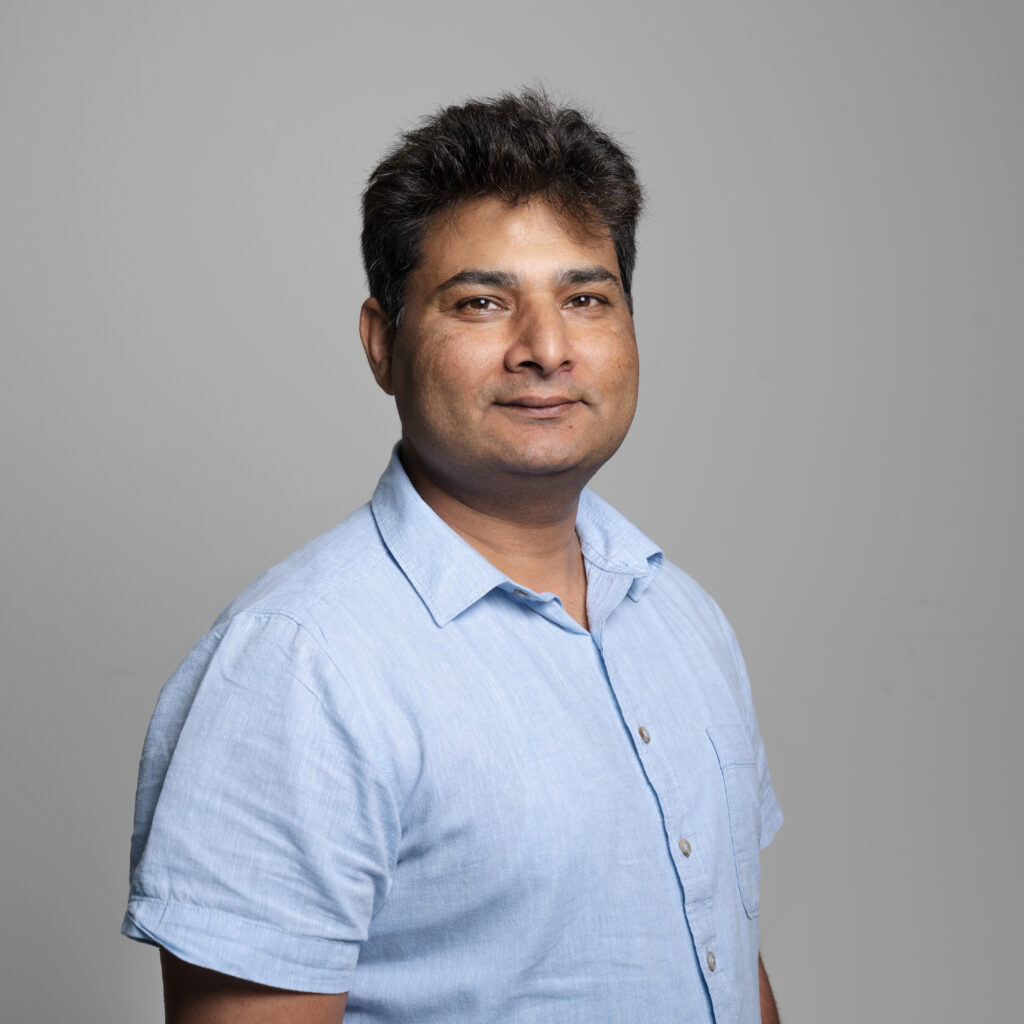
Muhammad Ismail Shah: “Leading a technology center in transition is time-consuming and all-absorbing – and terribly exciting.”
When the TCM chief highlights one standout moment in the first half of the year, the choice is easily the visit Crown Prince Haakon made to Mongstad at the beginning of March. He was greeted by cheering children, and during the tour of the facility in the beautiful weather, he was shown how CO2 capture works in practice. The heir to the throne also received thorough explanations from prominent representatives of the owner companies about how they are working on decarbonizing their operations and the significance of technology testing at Mongstad for reaching their ambitious goals.
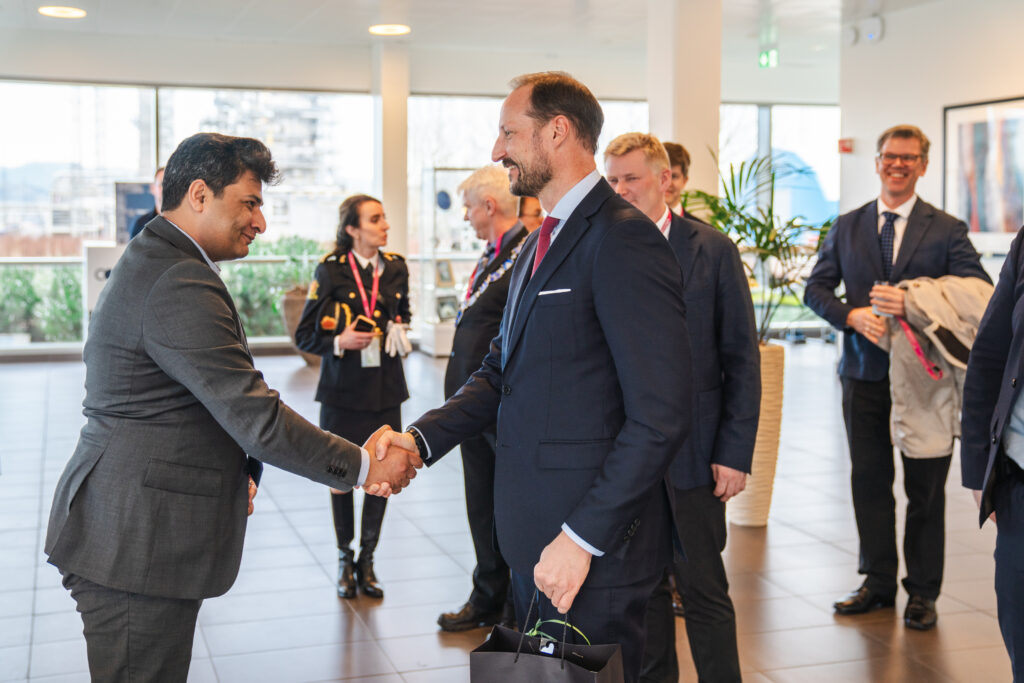
“With the agreement signed in December between the Norwegian state (34%) through Gassnova, the industrial owners Equinor (22%), Shell (22%), and TotalEnergies (22%) have significantly increased their involvement in TCM and have now taken the lead in bringing the company into a new phase. This is reflected in their engagement in developing a plan for what we internally have called TCM 2.0 – a solid and sustainable model for organization and operation from 2026 onwards,” says Shah.
The fact that Norwegian authorities continue to follow the operations at the technology center with great interest was confirmed when the Minister of Climate and Environment, Andreas Bjelland Eriksen, visited at the end of April. “My impression was that he was impressed by everything TCM has accomplished since its opening in 2012 and the importance that testing and verification of technologies with us have had for the implementation of full-scale CO2 capture projects, both in Norway and internationally.”
“Typically, we could tell that during this half-year we have completed a second round of testing for ION Clean Energy at the amine plant and for InnoSepra at the ‘Site for Emerging Technologies.’ These are two of a number of American companies that have chosen TCM because we offer facilities and expertise at a level they cannot find anywhere else in the world. This spring, we also held a workshop with ‘lessons learned’ from these highly successful campaigns with participation from the U.S. Department of Energy (DoE). TCM stands out as a catalyst and an important example of what the collaboration between Norway and the USA in the energy sector has led to in practice. The Biden administration’s climate initiative through the Inflation Reduction Act (IRA) further enhances TCM’s importance for the development of CCS as an industry.”
But it is not only Americans who visit TCM to test technologies or to learn about the opportunities the technology center offers. Recently, 30 honorary consuls invited by Greenspot Mongstad were informed about the industrial transformation in the area. They visited the technology center and received a thorough briefing on the role TCM plays in accelerating carbon capture and storage as a tool in the climate fight.
But in addition to receiving a large number of guests, TCM also travels around the world. Shah himself has given presentations at conferences in Florence, Copenhagen, and Paris in recent months.
“I have a strong sense that the ‘awakening’ related to carbon capture that TCM has long contributed to has now created strong momentum for CCS. This year, important decisions have been made about investments in large projects, among others, in the UK, and in Germany, which was long negative, the authorities have laid out a strategy for extensive use of the technology as well as for the transport and storage of CO2 offshore. For us, this opens up significant business opportunities,” emphasizes the TCM chief.
At TCM, extensive service work has been carried out throughout the spring to prepare for new campaigns that are scheduled to start in the second half of the year.
“Thus, we are ready for the efficient execution of technology tests with the high quality our customers expect. We are also working systematically to follow up on ‘leads’ aimed at test campaigns and sales of consulting services in the years to come. The market for the services we can offer is undeniably strongly growing,” asserts Shah.
For TCM as an organization, 2024 has also brought a significant change as employees who previously worked on consultancy contracts have now become permanently employed by the company. Moreover, several new hires have been made.
“Such processes take time but are important both for the individual and for the company. With permanent employees, both a greater sense of belonging to TCM and increased predictability in the working relationship are created, not least for young families who are establishing themselves with houses and homes near Mongstad. We are pleased that TCM is perceived as a serious and attractive employer offering interesting tasks and competitive terms in a secure and pleasant working environment. Skilled and hard-working employees are a crucial prerequisite for us to succeed in realizing the ‘new’ TCM – and I can honestly say that we have that. I am proud to be the leader of so many competent and outstanding people,” concludes Muhammad Ismail Shah.
Planning and implementing Carbon Capture Utilization and Storage (CCUS) projects are in full swing in several countries. However, many pitfalls exist, including technology selection, emissions management, and facility operation
Consequently, TCM’s advisory services related to CO2 capture have become an increasingly important business area. Recently, Olivier Messager from France took over the role of leading efforts to offer expertise and advice to project developers and operational managers. “It felt like a natural fit to combine my passion for CC(U)S with my professional experience,” he says in this interview.
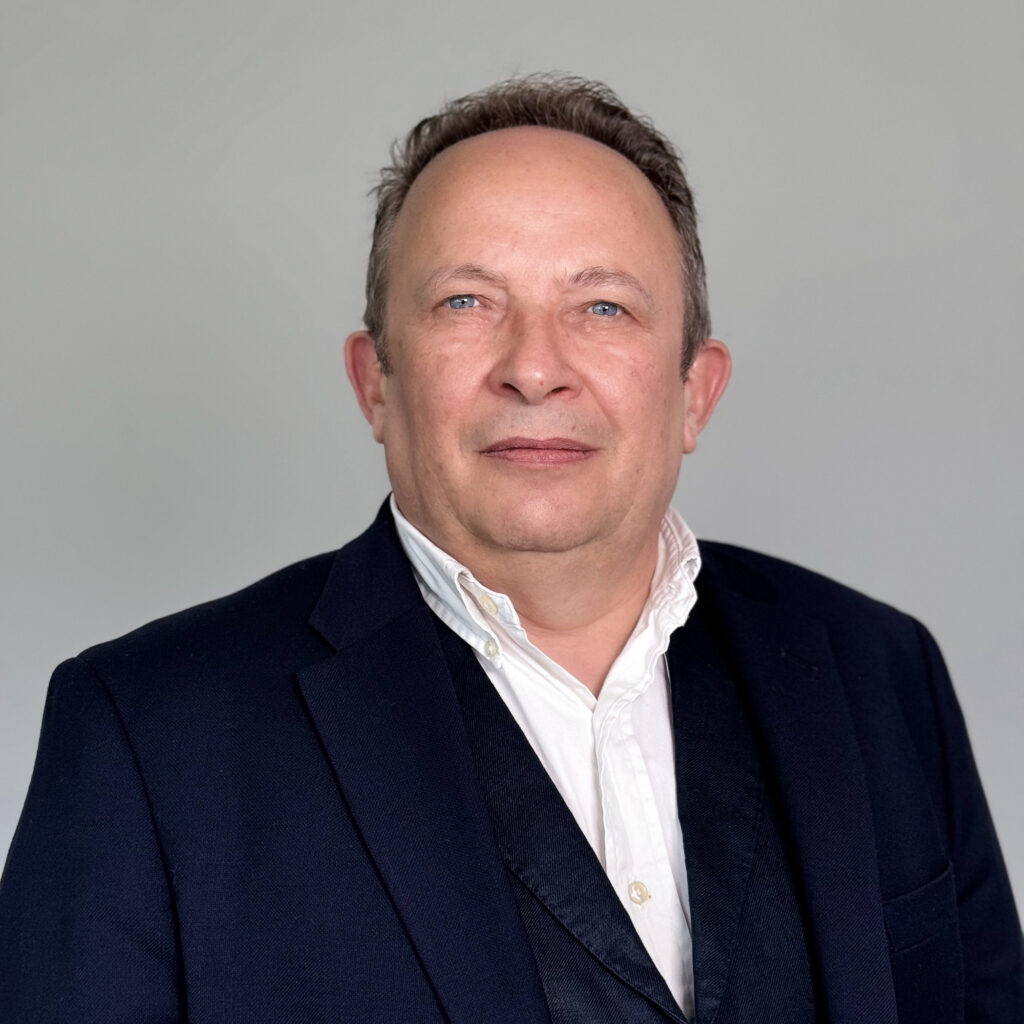
Olivier Messager is leading TCM’s efforts to offer expertise and advice to project developers and operational managers around the world.
“I began my journey in Carbon Capture Utilization and Storage (CCUS) in 2011, a year after joining KAUST University in Saudi Arabia. Over the past 13 years, I have gained extensive experience and developed a strong interest in the carbon dioxide cycle, from capture to storage. I have worked with various organizations including KAUST (KSA), TNO (NL), Club CO2 (FR), The Catalyst Group Resources (USA), and PolyTech Montreal (CAN).”
“Over the years, I have observed the development of the TCM site and its unique capabilities in testing both proprietary and non-proprietary solvent technologies. My career has largely involved working as a Business Developer or Technology Transfer Officer for innovative technologies. Therefore, when the Advisory Sales Lead position was advertised, it felt like a natural fit to combine my passion for CC(U)S with my professional experience.”
Name: Olivier Messager
Age: 57
Education: MSc Engineering / MBA in Chemical Engineering from KAUST (King Abdullah University of Science and Technology), Saudi Arabia
Marital status: Single
Present position: Lead Advisory Services at TCM since May 2024
“Having primarily worked with research institutes at the lab or prototype scale on adsorbents, membranes, and catalysts, I found it quite impressive to observe the sheer size of the absorber column at the amine capture testing plant. Additionally, I was struck by the profound safety and HSE culture, which is a legacy from Equinor.”
“TCM is globally recognized for its testing services, which help Technology Developers validate new technologies at a pre-commercial scale. TCM can accommodate the testing of innovative solvents and has recently opened a second test facility for alternative capture technologies like membranes and adsorbents, available in modular form factors such as containers.
The market demand for CCS is expected to grow in the coming years due to carbon pricing mechanisms and state incentives. Both emitters and EPCs will require advanced expertise for designing and operating carbon capture plants in hard-to-abate industries like cement, steel, and waste-to-energy. With 12 years of experience in running amine-based capture processes at a pre-commercial scale, TCM has accumulated a wealth of data, experience, knowledge, and best practices. To support its mission of facilitating carbon capture deployment, TCM has developed a second line of commercial activity: Advisory Services.”
“First, TCM is an organization that maintains neutrality among all parties. This means TCM can support by educating customers to make informed decisions. TCM does not deliver engineering packages or consultancy services that would indicate a preferred technology. Instead, our Advisory Services are grounded in over 20,000 hours of testing non-proprietary amine capture processes like MEA and CESAR-1. These services are designed to share TCM’s generic knowledge and know-how through standard knowledge reports on carbon capture and to co-design tailor-made knowledge and solutions with customers, ultimately delivering customer value through Q&A workshops.
We categorize our services into:
A detailed list of our offerings is available on our website: We are advisors (tcmda.com).”
“In addition to the design and construction of new carbon capture plants, we anticipate a need for training personnel to operate these plants safely, efficiently, and in compliance with HSE regulations. We have started outlining potential training services for emitters and the carbon capture value chain. At this stage, we welcome further input from the market.
TCM invites contributions on training needs or other suggestions from the value chain. You can share your expectations with me at olivier.messager@tcmda.com.”
”TCM has been at the forefront of what could be named ‘technological intelligence,’ providing unmatched expertise in carbon capture.” The phrase is attributed to Leila Faramarzi, who held key positions at TCM for five years.
Leila Faramarzi interest in CO2 capture originates in her academic background and early career in the natural gas processing industry.
“Natural gas processing has many similarities to carbon capture and it provided me with foundational technology insights. As I progressed across various parts of the CCS value chain, I saw the potential to address climate change while fostering collaboration between different industrial sub-sectors. My experience spans beyond hydrocarbons to include steel production and power generation. I see a great opportunity to deploy these technologies across diverse industries to combat the defining issue of our time i.e., climate change”, says Leila.
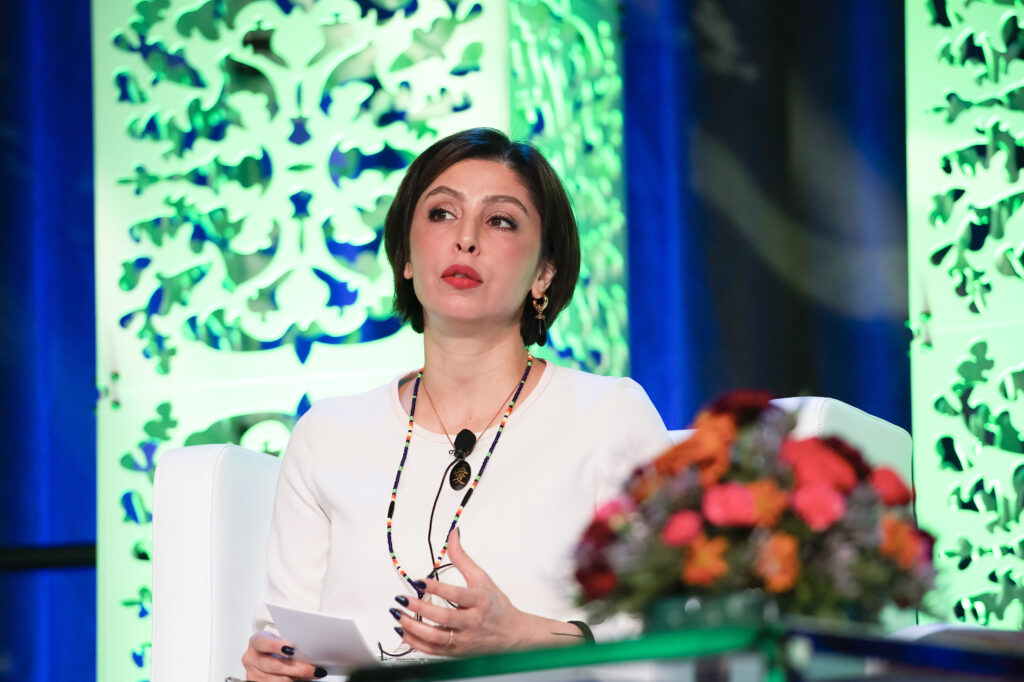
“My first encounter with TCM was in April 2015 when I joined the team. I had never been at Mongstad before. The sheer scale of the demonstration plant exceeded my expectations and also how beautifully and practically it was situated between a refinery and a combined cycle gas turbine power plant (CCGT). The integration of the carbon capture plant with the CCGT plant and refinery showcased an impressive design and unparalleled efficiency. Not only was I impressed by the technology, but also by the picturesque landscape surrounding the facility. Overall, it left a lasting impression on me.”
“My interest in TCM primarily stemmed from a technology perspective. The flexibility offered by TCM was unlike anything I had encountered before. The opportunity to interact with various technology suppliers allowed me to witness different processes in action at a large scale. Additionally, I found the open-access campaigns particularly rewarding. These extended campaigns of several thousands of hours provided valuable insights to industries, academia and regulatory bodies. It was truly remarkable as it enabled both researchers and technology vendors to expand their understanding, embrace new ideas, and improve their offerings.
At certain points, we were mandated by the owners, especially Gassnova, to assist CCS projects in different countries, leveraging the knowledge gained at TCM. We traveled to countries such as China, Korea, Japan, and also various European nations. This presented a unique opportunity to build a strong CCS community globally and gain insights into different cultures, opportunities, and constraints. TCM served as a window to learn about diverse countries and their respective challenges and opportunities, enriching our understanding in a way that was truly exceptional.”
Name: Leila Faramarzi
Age: 45
Marital status: Married
Education: MSc, Natural Gas Transmission and Processing from Petroleum University of Technology, Iran, and PhD, Carbon capture, from DTU – Technical University of Denmark
Present position: Head of Carbon Projects Development, E.ON, Munich, Bavaria, Germany
Affiliation to TCM: Business Development Key Account Manager (2015 – 2019) and Manager of Advisory Services (2019 – 2020)
“Singling out one specific project is challenging, but two stand out as particularly rewarding and impactful during my time at TCM.
The first was spearheading the open-access campaigns, involving meticulous analysis of various operational modes to assess how emerging technologies can match the requirements of various emission point sources. This initiative not only brought together diverse industries to TCM but also culminated in the publication of a comprehensive book of papers. Leading two of these campaigns was an exceptional experience, leaving me with invaluable insights to our industry and CCS community as a whole.
The second experience was establishing the Advisory Services department, disseminating TCM’s knowledge to projects in their nascent stages and shaping their success. In retrospect, these two endeavors — the open-access campaigns and the inception of TCM’s Advisory Services — stand as milestones of my carrier, the ones that I am immensely proud of.”
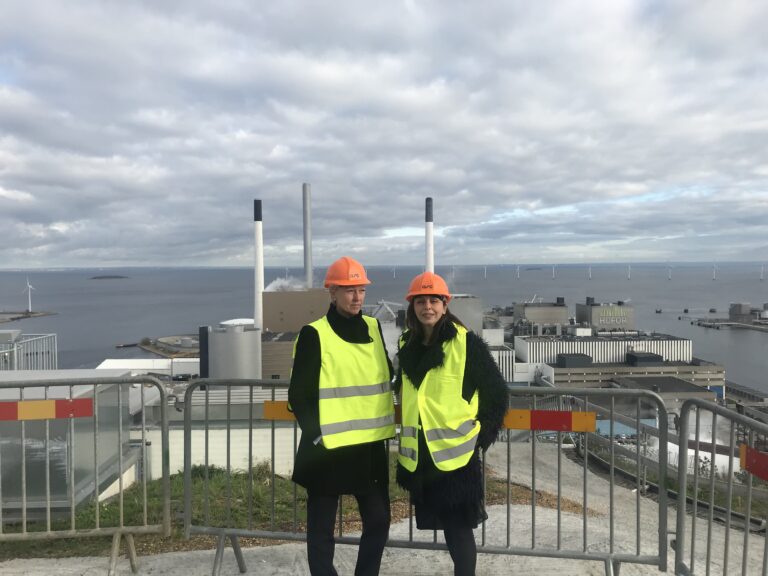
“At E.ON, I’m involved in managing a diverse portfolio of CCS projects across Eureope. While our focus includes decarbonising our existing assets, we’re also committed to advancing CCS solutions across the entire value chain for our external clients and the broader industry. Currently, to develop CCS projects, securing adequate funding remains a challenge, especially in Europe. Additionally, establishing robust CO2 transport and storage infrastructure requires increased collaboration between governments, regulatory authorities and the industries.”
“Developing business opportunities in CO2 management presents significant challenges, including bottlenecks in the infrastructure as well as the absence of a comprehensive regulatory framework and establishing reliable business models. Regulators must also acknowledge the potential benefits and risks associated with emerging technologies. Capacity-building in CCS must be a priority for the regulators and the governments. Navigating the interplay between technological advancements, regulatory frameworks, and funding mechanisms present a considerable challenge but also great opportunnities.”
“Reflecting on our journey since 2012, those who have been part of TCM, both past and present, have many reasons to be proud of our achievements. TCM has pioneered what I call ‘technological intelligence,’ offering unparalleled expertise in carbon capture. Our collegues in operations achieved excellence every single day by ensuring the smooth roll out of our technical plans. Additionally, our deep expertise in carbon capture is unparalleled, making TCM a beacon of intelligence in the field.”
“My wish for TCM in the years ahead is to deepen its integration with the downstream segments of the value chain. This entails extending our focus beyond the capture and helping projects in comprehensively understanding the nuances of CO2, particularly concerning CO2 specification. Addressing this challenge is pivotal, especially in ensuring the integrity of infrastructure. Projects must grasp the quality of CO2 generated at capture plants, as it significantly influences infrastructure design and integrity.
Additionally, I hope TCM evolves to provide ‘operational intelligence’— a crucial resource as industries embark on their carbon capture journeys. As new projects come on stream, especially in sectors like steel production, which lack operational expertise in this domain, the initial years pose considerable challenges. During the commissioning phase, access to operational expertise becomes invaluable. Therefore, my wish for TCM encompasses two facets: forging stronger connections with downstream stakeholders and offering essential operational guidance to industries navigating the complexities of carbon capture implementation.”
“Our carbon capture plant represents a groundbreaking initiative within our Fluid Catalytic Cracker (FCC) unit on site,” remarks Adam Young, Project Lead at Phillips 66 Limited.
TCM has played a crucial role in providing the Phillips 66 with insights and expertise to formulate plans for the carbon capture facility at the Humber Refinery in North Lincolnshire, UK. “Effective planning and fostering strong relationships are pivotal to the success of this project,” he emphasized.
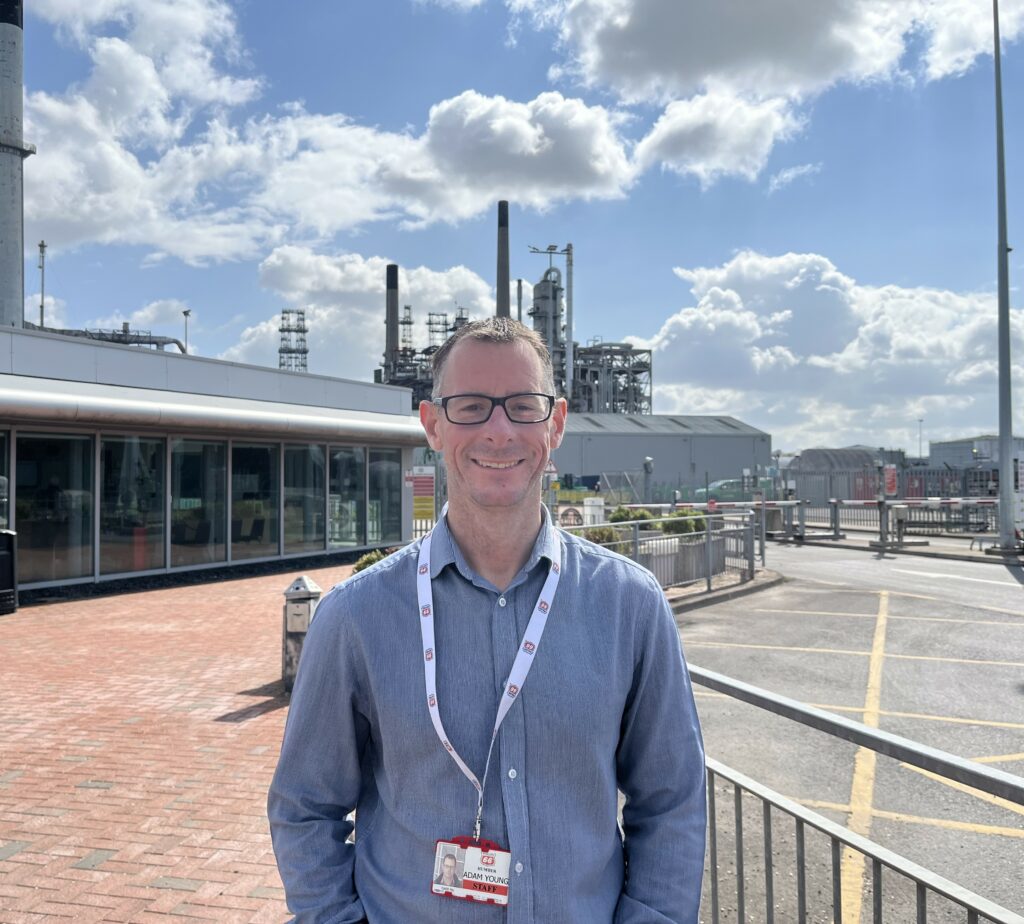
“Phillips 66 is seeking to reduce its greenhouse gas emissions. In 2021, we established our Emerging Energy division to lead strategic initiatives and develop lower-carbon business practices. The transition to a refinery with lower greenhouse gas emissions is underway. At the Humber Refinery, significant progress has been made. Notably, we are the first UK facility to process waste feedstocks, enabling large-scale production of sustainable aviation fuel under a multi-year commercial agreement with British Airways. Additionally, we are the sole European producer of specialty graphite coke, essential for lithium-ion battery production in consumer electronics and electric vehicles. Our current production is equivalent to placing 1.3 million electric vehicles on the road annually. Furthermore, the Humber Refinery is developing carbon capture and hydrogen refueling projects which are intended to reduce operational greenhouse gas emissions.”
”Our collaboration with TCM has supported the development of our carbon capture site. Working with TCM, we have gained insights and knowledge to shape our project plans. Given the innovative nature of this Fluid Catalytic Cracker (FCC) project, it is important we grasp the requirements, design considerations, and potential challenges. TCM has conducted technology testing, authored scientific papers, and provided guidance on facility operations, all of which are informing our project design and implementation strategies.”
“As the saying goes, ‘failing to plan is planning to fail.’
Planning and relationship-building are paramount. Our carbon capture project, integrated within our FCC unit, represents a pioneering venture on a significant scale. Given its size and complexity, meticulous planning is required, equipment procurement spans years, and resources from a range of stakeholders will be required to deliver the project. Establishing and nurturing relationships are equally vital – we are engaged with partners, the UK government, regulators, suppliers, contractors, workforce, and the local community, all requiring harmonious collaboration. From a technical standpoint, managing the composition and treatment of flue gas is pivotal. We must create optimal conditions for the amine solvent’s efficacy while ensuring compliance with environmental regulations and CO2 export specifications before pipeline entry. This balance is essential for operational success.”
”Phillips 66 has set decarbonisation goals, aiming to reduce manufacturing-related emissions intensity from operated assets by 30% and product-related emissions intensity by 15% by 2030. At the Humber Refinery, our focus is on reducing emissions over the long-term. We intend to accomplish this through a combination of energy efficiency projects, carbon capture initiatives, and the implementation of hydrogen refueling infrastructure. These efforts align with our global targets.”
“Finally, what’s the primary challenge that keeps you up at night, and what opportunity excites you the most?”
”One of the challenges facing all decarbonisation projects is the constraint on construction labour resources. The UK is experiencing a shortage of skilled workers, exacerbated by the multitude of projects entering the execution phase. If left unaddressed, it is projected that we’ll encounter a staggering 40% skills gap by 2032. However, amidst this challenge lies a compelling opportunity that energizes us. We have the chance to bridge this gap, and that is where the excitement builds. To bolster the energy transition, particularly for carbon capture projects like Humber Zero, Phillips 66 Limited, in collaboration with various stakeholders including businesses, educational institutions, and academia, is supporting a local training provider, CATCH. Together, CATCH aims to scale up from training 100 apprentices annually to 1,000 by 2029. This initiative will evolve into a net-zero training centre of excellence, serving as a model for similar endeavours nationwide and globally. It is a testament to our commitment to fostering resilience and enhancing capabilities within the UK economy.”
“I look forward to each new day at work, and feel that the pride in being a part of the TCM team is shared by my colleagues. A good working environment characterized by collaboration and accountability is an important prerequisite for us to succeed in developing an economically sustainable TCM.”
Last year, Christian Bergset was appointed Finance and Administration Manager at Technology Center Mongstad (TCM) after being contracted from PwC. However, his first encounter with TCM was already in connection with the company’s start-up in 2012.
“At that time, I worked at Amesto, which won the bid to implement the system for financial and accounting reporting at TCM.”
“I remember I was very impressed by the size of the facility and all the skilled people working to make it function. During the start-up period, there was operation on both the amine and ammonia plants with lots of people bustling in two shifts. In the work I participated in as a consultant, I got a strong impression of professionalism in the development of management systems for all parts of the operation. Thorough work routines have been and continue to be a strength for TCM. Although the number of employees has become much fewer than at the start, the work processes are still characterized by TCM being a large and well-organized company. This contributes both to the high quality of deliveries to customers and to the work environment for each individual being perceived as safe and secure.”
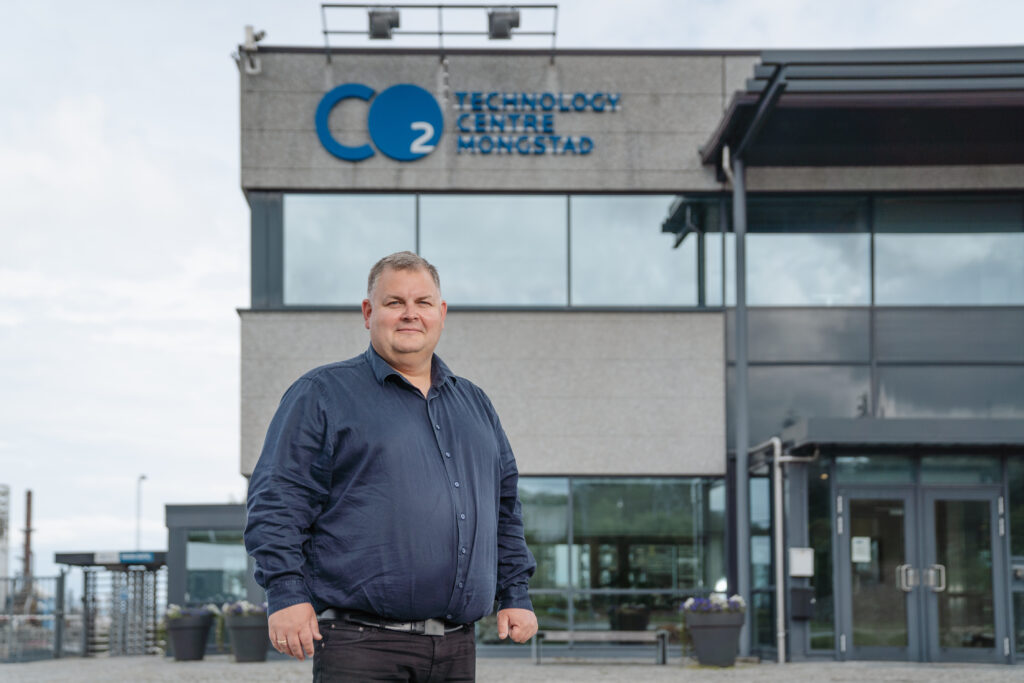
Christian Bergset enjoys his role as TCM’s Finance and Administration Manager. (Photo: Veronika Ask Stuksrud).
“I received a request to start as a controller, and thought it was right on target at that point in my career. Additionally, I knew TCM as a well-organized company. It was also no disadvantage that instead of being stuck in traffic from my home in Knarvik to and from work in Bergen, I could take the traffic-free road to Mongstad.”
“No, I was quite inexperienced there, and it wasn’t expected either. But over time, I have learned quite a bit about this as well, not least because when entering into contracts with technology providers, it is important to understand what testing of various technologies means for the resources required by us and about the costs that will be incurred.”
“From my perspective, the biggest change is that we have become far more commercial in our thinking about the projects we undertake. In other words, it’s not enough that a test campaign is academically developmental and interesting; it must also have a financial foundation that is sustainable for TCM.”
Name: Christian Heggernes Bergset
Age: 42
Marital status: Married, two children
Education: Master’s degree from the Norwegian School of Economics (NHH) in Bergen, Norway, with a specialization in financial management
Position: Finance and Administration Manager since 2023
“He he, not at all. TCM has a leadership team that complements each other and works well together. Economics is central to many of the issues we handle, including drafts of contracts with customers who are considering testing with us. If the case bases become too technical, I ask all the questions I need to understand what is meant. In this way, the review in the management team contributes to simplification and improvement in a way that also makes the documentation more accessible for customers who are to receive an offer or have a dialogue with us.”
“It is busy and very varied. Besides myself, the department consists of a controller, an office worker, and someone responsible for the operation of the buildings and outdoor areas. In addition to regular tasks related to accounting and reporting, our job is to provide administrative support to the managing director and to the other departments, so they can focus on their primary tasks. Therefore, HR is an important area of work, for example, participating in interviews with candidates and follow-up related to hiring. I also serve as the secretary for the Company Meeting, which is the board of TCM.”
“We are very grateful that the owners last December reached an agreement that gave us two years to create a plan to make the operation of TCM economically sustainable. Here, a project group led by the Managing Director is in full swing with the work, where the Company Meeting functions as the steering group. The main task is to develop models for organizing the business and to look at the possibility of developing new and profitable business areas. The project is to deliver a report by the end of this year, as a basis for discussion and decisions in the Company Meeting.”
“The market for carbon capture and storage (CCS) is experiencing positive growth, driven by national initiatives like Langskip and Northern Lights, and expanding international interest. However, it is clear that the industry’s ability and willingness to pay for services TCM can provide is still a risk factor. Another important challenge will be to finance the necessary upgrades our fantastic facility. The authorities invested a lot to realize this, and our job is to get as much out of it as possible. But we cannot ignore that after 12 years of operation, it will be necessary to replace components and equipment.”
“Even though there are many challenges and issues, I am optimistic. It is important for us that the industrial owners, Equinor, Shell, and TotalEnergies, through the agreement made in December, increased their ownership stakes in TCM to a total of 66 percent. This means a much stronger commitment from the industry for us to succeed. For my part, I hope to be able to contribute with my experience and expertise for many years to come. I really enjoy working at TCM!”
Based on more than 4,000 online instruments and 100 manual sample points, TCM has a unique ability to track the CO2 capture process for technology developers.
Since its inception in 2012, TCM has focused on providing technology developers with good and flexible opportunities to test their technology. The facility is equipped with many measurement points, allowing TCM to easily assist with analysis at different stages of the capture process.
The TCM team works with technology suppliers to draw up a plan for how the test campaign will be carried out. Details are incredibly important in such a campaign, and this is where TCM’s 12+ years of experience comes in handy. The TCM team is familiar with the CO2 capture process and facility and knows what it takes to meet the client’s needs. We assess what is feasible and what should be emphasized. Nothing is arbitrary and the plant can be run with the wishes of the campaign in mind. We have two different flue gas sources and can mix the CO2 content in different ways to meet the customer’s requirements. The plant can be ramped up and down and is very flexible. This makes testing at TCM unique. We refer to our previous article where we described a little about the solvent.
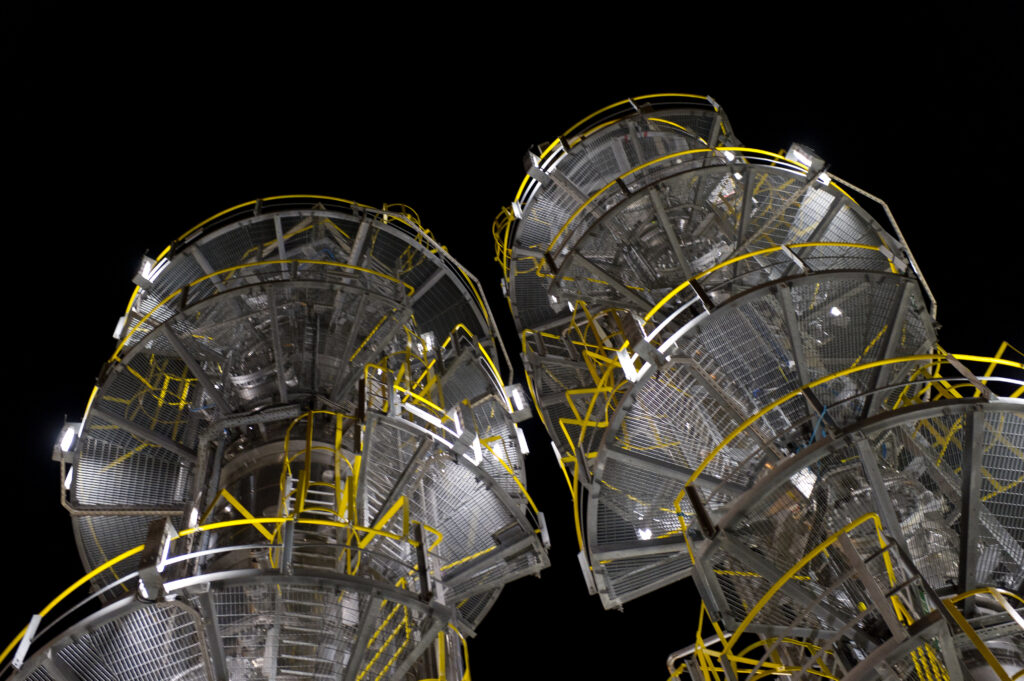
Technology Centre Mongstad (TCM). Photo: Styrk Fjærtoft.
TCM’s personnel are in daily contact with those running the test campaign, and the technology developer usually has its own personnel on site. High accuracy is important, so TCM employs dedicated people, each responsible for their own test campaign. The people involved work closely together, and everything from daily checks of the equipment to important analyses in the laboratory are part of the job. If necessary, TCM will also adapt the way it organizes the test campaigns. The personnel ensure that safety, HSE, confidentiality, etc. are well taken care of. This may be based on how we see the technology working in the facility. This also includes any emissions to air, where TCM has very strict emission criteria.
CO2 capture technologists are typically responsible for the preparation, execution, and reporting of a test campaign. Their daily activities include but are not limited to the following:
Continuously monitor the CO2 capture process, including parameters like temperature, pressure, flow rates, and CO2 concentration. Perform data analysis to identify trends or areas for improvement. Work with engineers, scientists, and technicians to ensure smooth operation of the test campaign. Participate in daily meetings to discuss test progress and any issues encountered. Provide regular updates to project managers and external partners on the test status. supervise routine maintenance on equipment to prevent breakdowns and ensure continuous operation. Ensure that all instruments, analyzers, and other measurement devices are calibrated for accurate data collection.
Manage the inventory of consumables, spare parts, and chemicals needed for the test campaign. Conduct routine safety inspections to ensure all equipment and procedures comply with safety regulations. Identify and address issues or anomalies, such as equipment malfunctions or performance deviations. Take regular gas stream samples and analyze them to determine CO2 capture efficiency and other key performance indicators. Prepare daily reports summarizing test results, operational issues, and any corrective actions taken.
These responsibilities ensure the efficient and safe operation of the test campaign, providing valuable data for the development and optimization of the CO2 capture technologies.
TCM encourages everyone who comes to the Technology Centre to share their experiences of testing at the facility. Everyone who comes to us for testing is required to report back weekly on their testing experience. At the end of the test campaign, a separate workshop is organized for those involved and TCM owners are given the opportunity to participate in this learning. Everyone is also encouraged to present papers at international conferences. To date, TCM has presented over 60 different scientific papers. Sharing the knowledge from the Technology Centre is important. Knowledge will help make CO2 capture technology more efficient and save industry players from uncertainty and unnecessary costs.
“Dissemination and sharing of knowledge about CO2 capture is a core task for TCM. At the conference ‘CO2, Capture, Storage & Reuse 2024′, we had ample opportunity to demonstrate our facilities and expertise, as well as engage in inspiring conversations with stakeholders from several countries.”
In mid-May each year, a large part of the international CCS community gathers for a conference in Copenhagen to get updated on the latest news about CO2 capture, storage, and reuse, as well as to develop collaboration between the stakeholders. This year was no exception, with Managing Director Muhammad Ismail Shah leading the delegation from TCM. They presented the technology center at a stand, and Shah also had the opportunity to talk about the unique test facilities and expertise at Mongstad in a lecture to the approximately 400 participants at the conference. He explained how TCM can assist technology developers, project owners, and others in developing their projects with the aim of commercialization and full-scale use.
“My main message was that the testing activities at TCM have been very important for the development and deployment of technologies for full-scale CO2 capture plants both in Norway, Denmark, UK and globally, and that we are very well equipped to contribute to the acceleration of CCS as an industry in the coming years. At the amine plant, technology providers can further improve, test and validate their mature CO2 capture technologies from industrial point sources, enabling them to de-risk and provide process and performance guarantees to its customers. At the Site for Emerging Technologies, we offer both physical facilities and the expertise that providers need to gain experiences that can elevate promising technology tests from smaller pilot plants to a higher technical level,” says Shah.
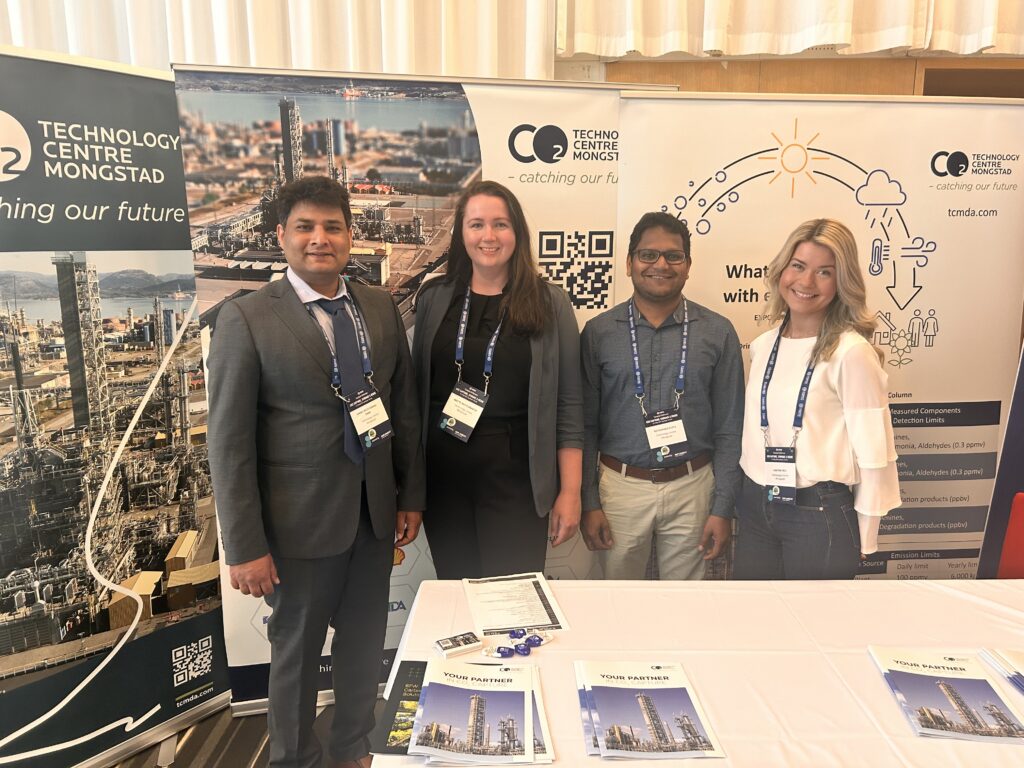
Denmark has taken significant steps in the past two to three years with decisions on investments in CO2 capture, storage, and reuse facilities. Ørsted will use technology from Aker Carbon Capture, which has been tested at TCM. Advisory Services at TCM has also assisted Ørsted with knowledge and experience in project development. ‘We are very well positioned to help stakeholders in Denmark realize their projects,’ emphasizes Shah.
“At the stand, there was great interest and engagement from many we already know, but also from stakeholders who had not previously been introduced to our testing and advisory services.”
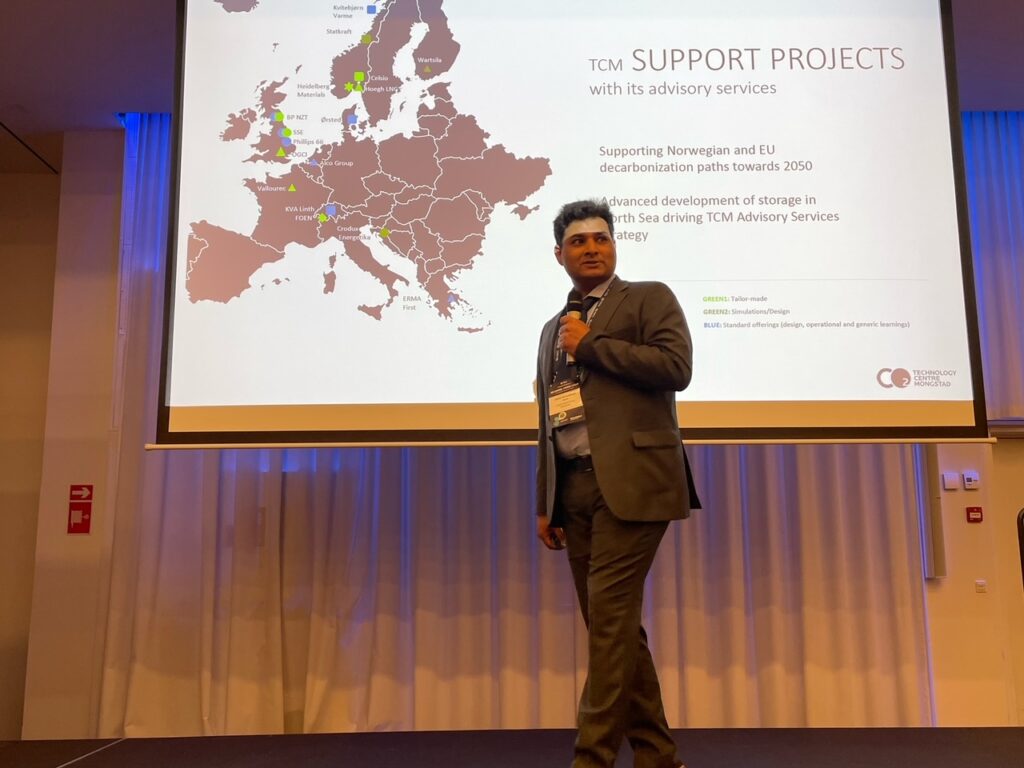
In addition to presentations of technical solutions for CO2 capture, there was also a strong focus at this conference on the regulatory developments in the EU that facilitate the capture, transport, and storage of CO2 as an important part of the climate solution. ‘We are undoubtedly witnessing a much-needed shift both in the EU and in many other parts of the world. This gives reason for optimism,’ emphasizes the TCM’s Managing Director.
Aker Carbon Capture constructed the TCM absorber present at the technology center today. During the construction process in 2012, significant emphasis was placed on ensuring the plant’s flexibility, a key factor in prolonging the center’s operational lifespan.
The absorber column has a cross-section 3.55 meters × 2 meters and total height of 60 meters. Three packing beds are installed in the absorber. This absorber column serves as the primary site for both CO2 capture and emission control, effectively addressing environmental concerns in tandem.
Establishing a new absorber constitutes a significant portion, approximately 45%, of the costs associated with a CO2 capture unit. A key insight from one of TCM’s cost analyses underscores that absorbents alone represent nearly half of the total material expenses for such a plant.
To mitigate these costs, various strategies can be implemented, including streamlining the scrubbing section, optimizing solvent consumption, enhancing capture rates, reducing steam consumption (thus lowering energy usage), and increasing the CO2 content in the flue gas.
At TCM, we collaborate closely with technology suppliers to optimize plant performance. Through meticulous testing of different CO2 concentrations ranging from 1% to 20% and strategic positioning of the solvent within the plant, we leverage our team’s expertise and extensive operational experience. Our rigorous test campaigns provide a robust foundation for comparison and enable us to offer valuable insights to technology suppliers striving to achieve maximum efficiency.
Ultimately, our shared goal is to advance the development of the most efficient CO2 capture technologies, and we take pride in leveraging our knowledge and resources to support industry partners in realizing this objective.
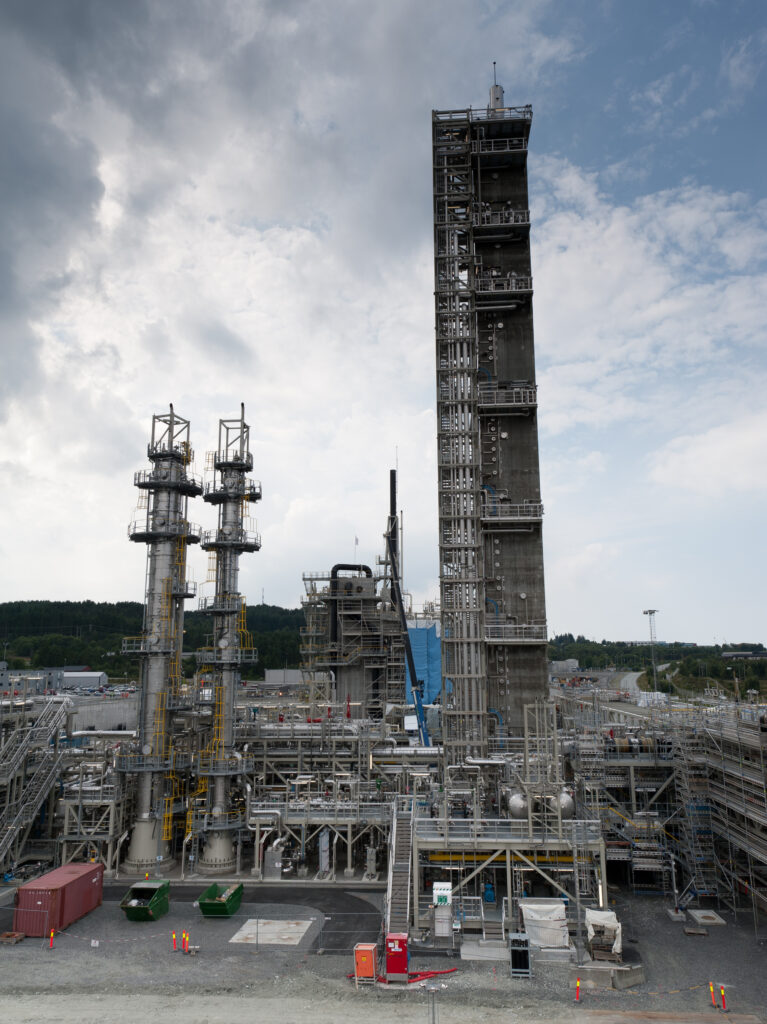
At TCM, our focus is not on determining the superiority of one technology over another, instead we support the technology developers by providing guidance on enhancing the efficiency of their solvent technology. This involves furnishing actionable insights through continuous monitoring of the absorption process. To achieve this, we employ various measurements obtained from different sample points, including CO2 inlet, outlet, and water wash sections.
In terms of flexibility, as highlighted in our earlier article, the amine absorber is capable of testing with two distinct industrial sources of flue gas, complemented by recycling and dilution capabilities.
Transitioning to the solvent aspect, the key to the absorber operation efficiency lies in ensuring optimal contact between the solvent and the CO2. At TCM, this is accomplished by introducing the solvent to the packing material within the absorber column. Furthermore, three solvent feed injection levels enable adaptable absorber operation, offering variations with 12 meters, 18 meters, or 24 meters of packing.
As the processed flue gas moves upwards, it passes through the water washes at the top section of the absorber, which helps scrub the flue gas and reduce solvent entrainment, thereby minimizing solvent loss. The amine absorber incorporates two distinct water wash sections, serving dual purposes:
CO2-depleted flue gas exits the top of the absorber column, and the rich solvent exits the bottom of the absorber column and is heated in the cross-heat exchanger by a countercurrent stream of hot lean solvent.
In a rapidly evolving landscape of CO2 capture technologies, it’s imperative to remain ahead of professional advancements. Active participation in collaborative initiatives is a key. At TCM, we’re engaged in partnerships with EU projects, to test and demonstrate their CO2 capture technologies at our “site for emerging technologies.”
Beyond vendor testing, the owners of TCM have conducted numerous test campaigns utilizing commercially available solvents, including MEA and CESAR1. These campaigns have scrutinized multiple parameters and operational scenarios to ascertain optimal system performance. These endeavors have yielded invaluable insights that serve as a benchmark for comparison among various technology developers and buyers.
The wealth of experience garnered through these endeavors is now available for sharing with other upcoming technology vendors, including Longship; Heidelberg Materials, and Hafslund Oslo Celsio. By facilitating knowledge exchange, we collectively drive progress in CO2 capture efforts.
A significant portion of our clientele returns to TCM for solvent re-testing. Whether they have refined their existing solvent based on lab findings or introduced a completely new solvent, we accommodate both scenarios. The feedback we consistently receive from our customers underscores their appreciation for the insightful guidance provided during the testing process.